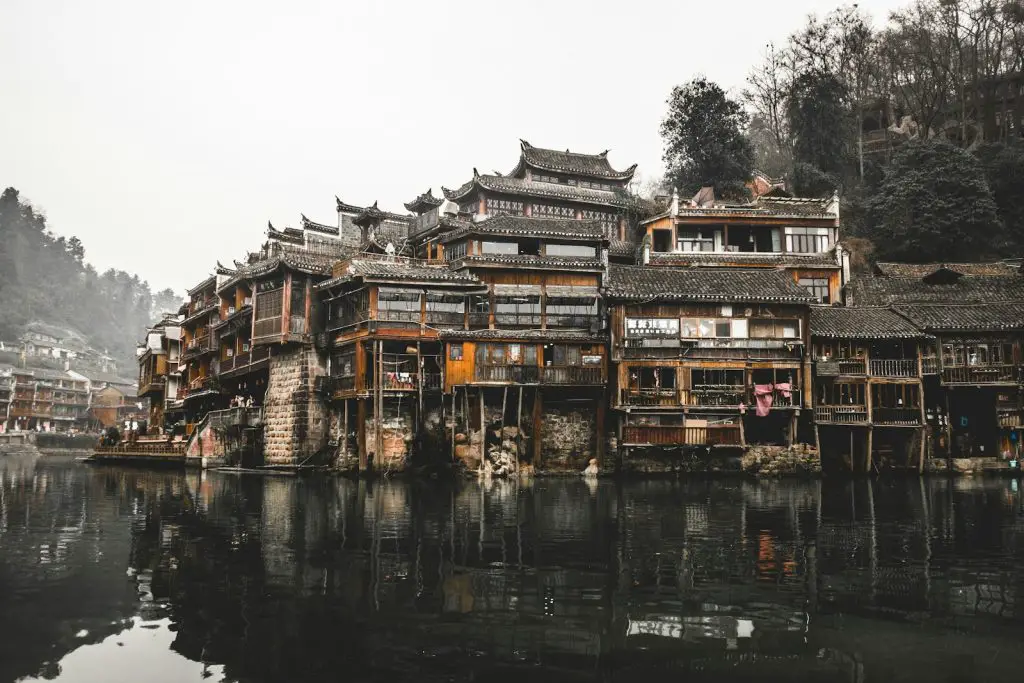Introduction
Human civilization relies on its historical elements that shape nation structures and both social and cultural components. Several nations maintain prominent historical positions by contributing substantially to cultural development in applied science as well as politics art production and philosophical advancement. Through their past empires’ ascents and declines these nations directed key global historical events. We investigate ten world nations with the most storied histories and the legacy they have brought to future generations.
1. Egypt
Egypt serves as the cradle of civilization because humans have been recording history there for over 5,000 years. The ancient Egyptians identified as pioneers of architecture engineering and mathematics because they built the pyramids along with the Sphinx and operated advanced irrigation systems. With hieroglyphic writing as their earliest known form of written communication Egyptians pioneered basic text communication methods during ancient times.
Table of Contents
Influence:
Through their revolutionary achievements across art and architecture together with science Egypt created enduring legacies throughout the world. The pyramids’ inspirational design concept of monumental architecture serves as inspiration for multitudes of global buildings. Through its cultural traditions and religious practices Egypt continues to attract historical interest among investigators who study archaeology and history.
2. Greece
Ancient Greece contained the beginnings of every aspect of Western civilization. The Greeks experienced brilliant progress in philosophy together with democracy along with literature and artistic development. The thinkers Socrates Plato and Aristotle created Western philosophy’s cornerstones yet Sophocles and Euripides created a revolutionary drama framework.
Influence:
The modern political framework received its democratic foundations from Greek societal beliefs. All across the globe, the Olympic Games from their ancient Greek beginnings continue to host events that bring nations together while celebrating sportsmanship. The rich world of Greek legends shapes contemporary artistic works together with literary masterpieces as well as modern popular entertainment throughout the globe.

3. Italy
Rome held the central position among the most potent historical empires when the Roman Empire ruled the world. History remembers Rome primarily for its foundation of worldwide laws and architectural engineering achievements together with its lasting impact from the use of the Latin language.
During the Italian-originated Renaissance movement, people rediscovered art alongside science and culture.
Influence:
Our contemporary legal system’s foundation stems primarily from Roman law legislation. The Italian Renaissance created two of the most celebrated artists of all time, Leonardo da Vinci and Michelangelo. The world continues to show admiration for everything Italy offers from both its architectural designs to its distinctive cuisine.

4. China
China holds one of the longest-running ancient civilizations which has survived for more than 4,000 years. Through their advent of paper along with gunpowder and the compass and printing methods Chinese scientists created breakthroughs that impacted international trade and warfare operations as well as global communication methods. History’s greatest legacies in China include both the Great Wall and the Terracotta Army.
Influence:
Placing China’s discovery and invention history stands as a driver of worldwide development advancement. As a system of philosophy that began in traditional Chinese culture Confucianism spread ethical teachings throughout East Asia. China maintains growing economic-driven influence as well as political power which establishes its position as one among the leading global actors today.

5. India
As a nation, India maintains the distinction of being among the world’s most ancient societies because its timeline extends into the Indus Valley Civilization approximately 2500 BCE. The region gives birth to Hinduism alongside Buddhism Jainism and Sikhism as major religions. The发展 of mathematics through 主要 Indian discoveries such as zero along with its diverse cultural traditions has simplified 世界 in important ways.
Influence:
Indian philosophy along with spirituality continues to shape major thought systems throughout the worldwide intellectual landscape. Buddhism traveled across Asia thus modifying how many countries understand both culture and religion. Indian musical and dance practices together with culinary rituals delight viewers from around the world with their vibrancy.

6. Iran (Persia)
Historically known as Persia Iran maintains one of the longest-lasting civilizations in world history. During ancient times the Persian Empire held major dominance over the world while advancing its cultural achievements including scientific discovery alongside its government systems and artistic abilities. Through the creation of its Royal Road the Persian Empire accomplished international trade and intercontinental communication for vast regions.
Influence:
The writings of Rumi and Hafez together with Persian literature have succeeded in inspiring countless numbers of future generations. Persian architectural works along with mesmerizing complex designs continue to inspire artistic development throughout Middle Eastern and Central Asian regions. The historical attributes of Iran remain fundamental in directing Iranian national culture.

7. France
Through its central involvement French history has made essential contributions to European as well as global developments. The Frankish Empire until the French Revolution both established and maintained France’s status as an essential political and cultural economic intellectual center. Due to the French Revolution, political systems implemented rules based on liberty equality, and fraternity that form the bedrock values of contemporary democracies.
Influence:
The world has experienced major influences from artistic products philosophical concepts and written art emerging from the French context. Enlightenment ideal creators Voltaire and Rousseau are famous for their work but modern society remembers French cuisine and fashion as sophisticated standards of achievement. Throughout the world, various regions still bear the enduring impact of the French colonial experience.

8. United Kingdom
As one of the largest ever empires in history, the United Kingdom now holds a long-standing legacy spanning from its imperial heights through its subsequent decline. From its origin point in Britain, the Industrial Revolution pushed forward ancient global economic patterns while reshaping worldwide societies. Throughout history, the UK maintained its position as a leading force in literature science, and political thought.
Influence:
Colonial efforts by the British have turned English into the world’s preferred communication language. British laws together with political structures have played an essential role in shaping numerous international governments. Shakespeare together with Newton and Darwin attach their names to fundamental literary scientific and philosophical milestones.
9. Japan
Throughout Japanese history, people have advanced their society by navigating a fusion between traditional customs and modern progress. Population growth follows greater technical advancement and cultural resurgence like never before during Japan’s transition from ancient feudal society to modern events post-Meiji Restoration. Naturism and religiosity appear in Japanese art alongside literary and philosophical expressions.
Influence:
The world has become deeply fascinated by every element of Japanese culture ranging from tea preparation traditions to animated stories. Japan has achieved status as a worldwide top innovator through its modern technology discoveries. Martial arts along with principles from Zen Buddhism now influence practices throughout the world.

10. Mexico
The Americas contain several highly developed pre-Columbian civilizations in Mexico: both Maya and Aztec. Through their existing knowledge base, these civilizations advanced astronomy alongside mathematics while developing unique architectural systems. The history of Mexico includes both developments from Spanish colonial rule and conquest alongside indigenous developments.
Influence:
Mexican culture spreads all over the world in its entirety through the celebration of Mexican foods and festivals. Every year millions of travelers visit both ancient archaeological sites known as Teotihuacan and Chichen Itza. The historical struggle for freedom that Mexico has experienced drives modern social justice revolutionary movements.

Conclusion
The ten highlighted countries together crafted their national pathways and brought meaningful impacts to worldwide historical developments. Their influence on human culture through art together with science philosophy and governance has created enduring impacts on collective humanity. Our examination of diverse historical developments provides greater insight into worldwide connections because these civilizations leave permanent historical traces in our world. The continuing existence of these historical treasures demands our careful preservation because we must protect their capacity to inspire generations to come.
Top 10 Lists of the people, things, places, most expensive, animals, most popular, luxury and high rankings of world. World's Top Insider focuses on the top ten lists of best, greatest and top rankings in the world.




